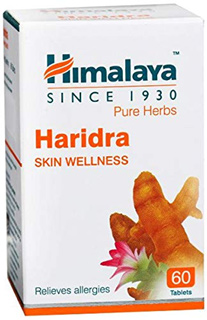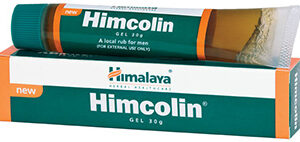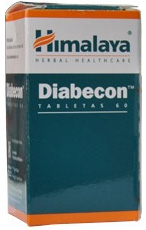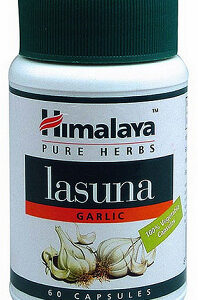Haridra, also known as Turmeric, is a medicinal herb commonly used in Ayurvedic medicine. It is derived from the root of the Curcuma longa plant, which is native to Southeast Asia. Haridra has been used for centuries due to its numerous health benefits, including its anti-inflammatory, antioxidant, and antibacterial properties.
Haridra contains a compound called curcumin, which is responsible for many of its therapeutic effects. Curcumin has been found to have anti-inflammatory effects by inhibiting certain enzymes and molecules involved in the inflammatory response. It also acts as a powerful antioxidant, neutralizing harmful free radicals and reducing oxidative stress in the body.
In addition to its anti-inflammatory and antioxidant properties, Haridra has been studied for its potential benefits in various health conditions, including arthritis, digestive disorders, skin problems, and even cancer. It is available in various forms, including capsules, powders, extracts, and as a spice for culinary use.
What to Avoid When Taking Haridra
While Haridra is generally safe for most people, there are certain individuals who should avoid taking it. These include:
- Individuals with gallbladder problems: Haridra can stimulate the production of bile, which may be problematic for those with gallbladder issues.
- People on blood-thinning medications: Haridra has mild antiplatelet activity, so it may increase the risk of bleeding in individuals taking blood-thinning medications such as warfarin or aspirin.
- Those with iron deficiency: Haridra may interfere with iron absorption, so individuals with iron deficiency anemia should exercise caution when taking this herb.
- People with kidney stones: Haridra contains oxalates, which can contribute to the formation of kidney stones. Individuals with a history of kidney stones should consult their healthcare provider before using Haridra.
Haridra Reactions
While Haridra is generally well-tolerated, some individuals may experience side effects. These may include:
- Gastrointestinal issues: Some people may experience digestive disturbances such as nausea, diarrhea, or stomach upset when taking Haridra.
- Allergic reactions: In rare cases, individuals may develop an allergic reaction to Haridra. This can manifest as skin rashes, itching, or swelling.
- Stomach ulcers: Haridra may increase the production of stomach acid, which can exacerbate existing stomach ulcers or lead to the development of new ulcers.
- Increased bleeding risk: As mentioned earlier, Haridra has mild antiplatelet activity, which can increase the risk of bleeding in some individuals.
How to Take It
When taking Haridra, it is important to follow the recommended dosage and guidelines provided by your healthcare provider or the product label. The typical dosage for Haridra supplements is around 500-2000 mg per day, divided into multiple doses.
If you miss a dose, simply take it as soon as you remember. However, if it is almost time for your next scheduled dose, skip the missed dose and continue with your regular dosing schedule. It is important not to double the dose to make up for a missed one.
In the case of an overdose, seek immediate medical attention. Symptoms of Haridra overdose may include stomach pain, nausea, vomiting, or diarrhea.
What to Watch Out For
When taking Haridra, it is important to be aware of potential interactions with other drugs. Some substances may interact with Haridra, altering its effectiveness or increasing the risk of side effects. It is advised to consult with a healthcare professional before combining Haridra with the following:
- Blood-thinning medications: Haridra may enhance the effects of blood-thinning medications, increasing the risk of bleeding.
- Antidiabetic drugs: Haridra may lower blood sugar levels, so caution should be exercised when taking it alongside antidiabetic medications to avoid hypoglycemia.
- Antacids: Taking Haridra with antacids may reduce its absorption and effectiveness.
- Immunosuppressants: Haridra may interfere with the effectiveness of immunosuppressant medications, reducing their efficacy in individuals undergoing organ transplantation or with autoimmune diseases.
The Answers You Need
- 1. Can Haridra be used during pregnancy and breastfeeding?
Haridra is generally safe to use in cooking during pregnancy and breastfeeding. However, it is recommended to avoid high-dose supplements or medicinal amounts without consulting a healthcare provider. - 2. Are there any drug interactions with Haridra?
Yes, Haridra may interact with certain medications, including blood thinners, antidiabetic drugs, antacids, and immunosuppressants. It is advisable to consult with a healthcare professional before combining Haridra with any medications. - 3. Can Haridra help with arthritis?
Haridra has been studied for its potential benefits in arthritis due to its anti-inflammatory properties. Some studies suggest that it may help reduce pain and inflammation in individuals with arthritis. However, more research is needed to establish its efficacy. - 4. Is Haridra safe for long-term use?
Haridra is generally safe for long-term use when taken within the recommended dosage. However, it is advisable to periodically review its usage with a healthcare provider to ensure its continued safety and efficacy. - 5. Can Haridra be used topically?
Yes, Haridra can be used topically. It is commonly used in the form of creams or ointments to help with skin conditions such as eczema, psoriasis, or acne.






Reviews
There are no reviews yet.